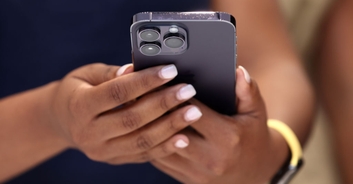McDonald's has announced that it is getting rid of all plastic straws from its UK and Ireland stores starting from September. The decision by the US fast-food chain to switch from plastic to paper straws follows a trial at a number of outlets in the past two months.
The old plastic straws will be replaced with paper ones which can be recycled. The restaurant chain uses about 1.8 million plastic straws every day in the UK - each single-use plastic straw can take up to hundreds of years to decompose if they aren't sent to be recycled.
A statement said: "Reflecting the broader public debate, our customers told us they wanted to see a move on straws." With any luck, this massive decision will lead to a complete removal of single-use plastic straws from all of McDonald's restaurants worldwide. Trials are to take place in Norway, France and the USA soon.
Eric Goldstein, senior attorney for the Natural Resources Defense Council, said the announcement from as big a company as McDonald's reflects the growing tide of concern about single-use plastics worldwide. "The drive to eliminate plastic straws is a good step and it's symbolic -- and symbols are important," he said. "You could say it should've been done earlier, but it's certainly better late than never."For now, the ban on plastic straws will only concern UK and Ireland restaurants.
Some countries are already bounds ahead. Plastic straws must already be requested and aren't provided without asking. The British government has been discussing the possibility of banning all single-use plastic straws, but some businesses are acting ahead of time to eliminate them from their own locations. JD Wetherspoons switched to not using plastic straws - only giving them out when requested - at the start of 2018 and chain restaurant, Pizza Express has also committed to removing them by this summer.
More than 60 music festivals, including Bestival, have also committed to eradicating plastic straws from all of their sites by 2021. Environment Secretary for the UK, Michael Gove said that McDonald's was setting "a fine example to other large businesses".
Many of the straws that are given away with drinks are made up of plastics such as polypropylene and polystyrene. These materials will not decompose for an incredibly long time if left unrecycled and can end up in oceans, causing great damage to wildlife and the environment.
Chief Executive of McDonald's operations in the UK and Ireland, Paul Pomroy, said: "The government's ambitious plans, combined with strong customer opinion, has helped to accelerate the move away from plastic and I'm proud that we've been able to play our part."
Not everyone is so keen though. Baroness Tanni Grey Thompson argued that plastic straws can help disabled people drink without assistance.
Meanwhile, packaging company Tetra Pak said: "We will continue to make the case that straws attached to our packages serve a vital functional purpose, and that bans are not the best way to tackle this issue, given the consequences of doing so."
The company also argued that pushing the straw back into the box allows for both packaging and straw to be recycled.












